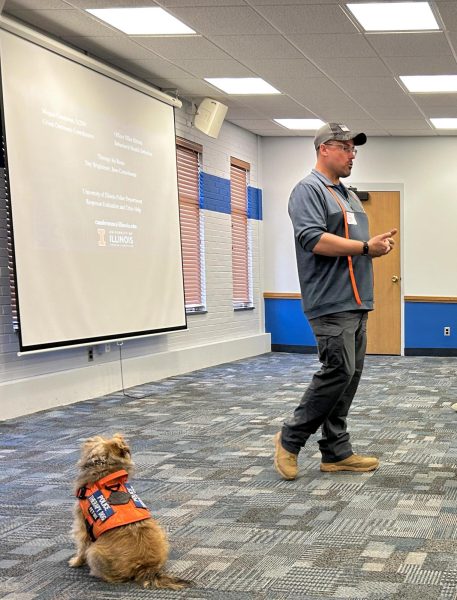
The 25th annual Bonine Suicide Prevention Conference took place on Friday on the third floor of the Martin Luther King Jr. University Union with approximately 100 attendees.
One of the attendees was Tom Bonine, who founded the Thomas A. Bonine Rainbow of Hope Fund along with his family that raises money for the conference. He did so after his son Thomas Bonine committed suicide in 1998 while attending Eastern.
The keynote speaker for the conference was founder and president of Inspiring My Generation Francesca Reicherter.
Reicherter is a graduate student at Pepperdine University, has published six workbooks on mental health and hosts a podcast titled “Normalize the Conversation.”
Her presentation followed along with the name of her podcast by highlighting five reasons why it’s important to normalize the conversation on mental health.
The five reasons why it’s important are that it reduces stigma, encourages help-seeking, builds stronger support systems, improves mental well-being and saves lives.
Reicherter said a way for people, especially college students, to start having conversations about mental health is by answering the everyday, “How are you question?” intentionally.
“I would say first don’t be afraid to answer honestly, and start with that,” Reicherter said. “Even if they don’t, it’ll open that space for them to know that they can in the future.”
Reicherter was brought in by the planning committee of the conference, which is headlined by Associate Director of Counseling Clinic Jessica Cobert and Interim Assistant Director of Counseling Clinic Lindsay Wilson, after filling out the mock form to do a breakout session at last year’s conference.
According to Cobert, Reicherter was already picked to be the keynote speaker for this year before last year’s conference even happened.
“We were like, ‘No, you need to be a keynote,’ but last year we already had our keynote planned,” Cobert said. “I’m like ‘Are you down to do this next year?’ and she was.”
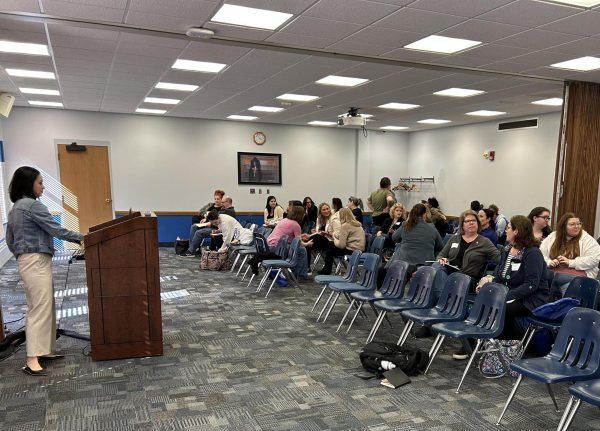
Cobert said they find the other presenters by reaching out to connections they have or through the mock form that they send out to faculty, staff and previous attendees to see if they are willing and have any ideas to present.
One of the other presentations was from the University of Illinois Urbana-Champaign Police Department Crisis Outreach Coordinator Megan Cambron and officer Michael Mitrou on the department’s Response Evaluation and Crisis Help initiative that pairs a police officer with a social worker.
This presentation went into the benefits of having a co-response team, especially in an environment like a university.
UIPD started having a co-response team at the beginning of the 2021 school year and are the only department to do this in the area, according to Cambron.
“I can’t see a world our officers aren’t gonna be involved in mental help response in some way,” said Cambron. “It makes good sense to me that if that’s gonna be the case. If we’re gonna have police responding, then we should partner them with mental health professionals to help in those situations.”
Cambron said that having this co-response team model has made a positive impact on UIUC’s campus by highlighting personal stories of people saying how it impacted them, more collaboration with other departments on campus and having team members that are on UIUC’s threat assessment team.
“I think what most sticks out is the personal stories to me about how meeting somebody in their worst possible moments and sitting with them for a while and helping them figure that out really changed the sort of trajectory of what they thought was gonna happen next,” Cambron said.
EIU professors Aimee Janssen-Robinson, Amanda Harvey and Emma Noble gave a presentation on a newer class at Eastern called Health Citizenship, how everyone can play a role in supporting student mental health and how the class teaches students to do that.
The class is full of training programs, one of which allows students to become Mental Health First Aid certified.
Western Illinois University’s Counseling Center Director Cara Cerullo presented on prevention, intervention and postvention in higher education.
“We really want to normalize almost every response that an individual might have and just basically share that they’re having a normal to an abnormal event or an extraordinary event,” Cerullo said.
Amber Clark, community engagement and partnership coordinator for suicide prevention at Veteran Affairs Illiana Healthcare System, also gave a presentation on lethal means safety and harm reduction strategies.
She presented on veterans specific risks and how much suicide impacts veterans, especially ones caused by firearms.
Bryce Parker can be reached at 581-2812 or at baparker2@eiu.edu.





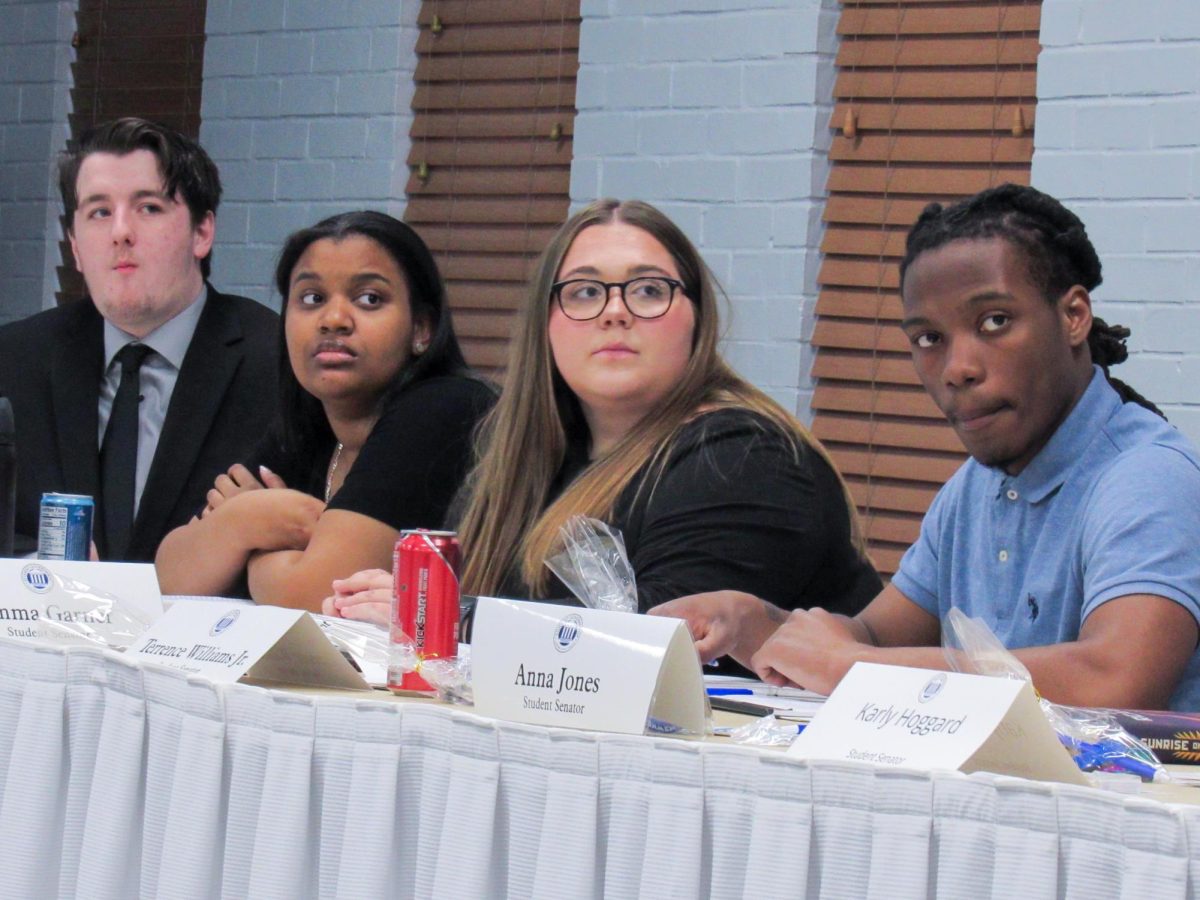


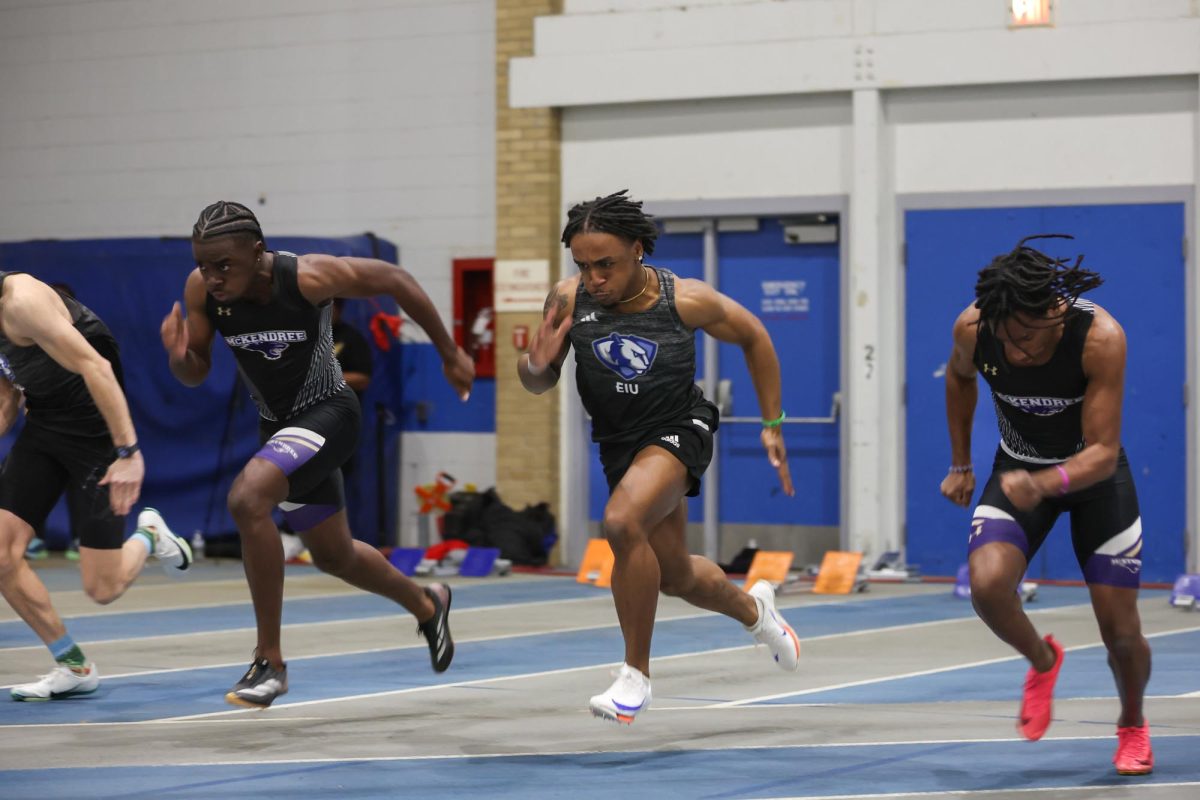



![[Thumbnail Edition] Junior right-handed Pitcher Lukas Touma catches at the game against Bradley University Tuesday](https://www.dailyeasternnews.com/wp-content/uploads/2025/03/MBSN_14_O-e1743293284377-1200x670.jpg)

![[Thumbnail Edition] Eastern Illinois University baseball senior utility player Tyler Castro fields a ground ball during the team's first intrasquad scrimmage of the season on Jan. 31.](https://www.dailyeasternnews.com/wp-content/uploads/2025/03/BB_01_O-e1742874760130-1-e1742907504722-1200x911.jpg)
![[Thumbnail Edition] Senior Foward Macy McGlone, getsw the ball and gets the point during the first half of the game aginst Western Illinois University,, Eastern Illinois University Lost to Western Illinois University Thursday March 6 20205, 78-75 EIU lost making it the end of their season](https://www.dailyeasternnews.com/wp-content/uploads/2025/03/WBB_OVC_03_O-1-e1743361637111-1200x614.jpg)






















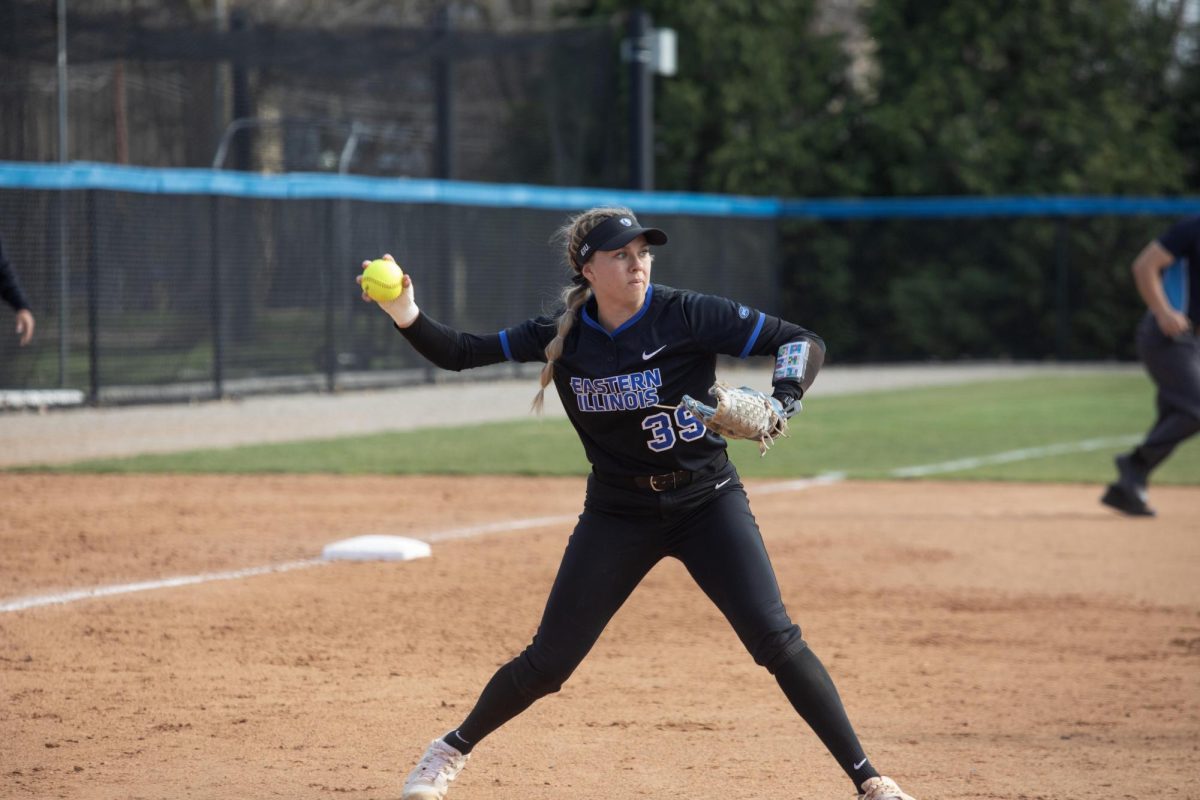
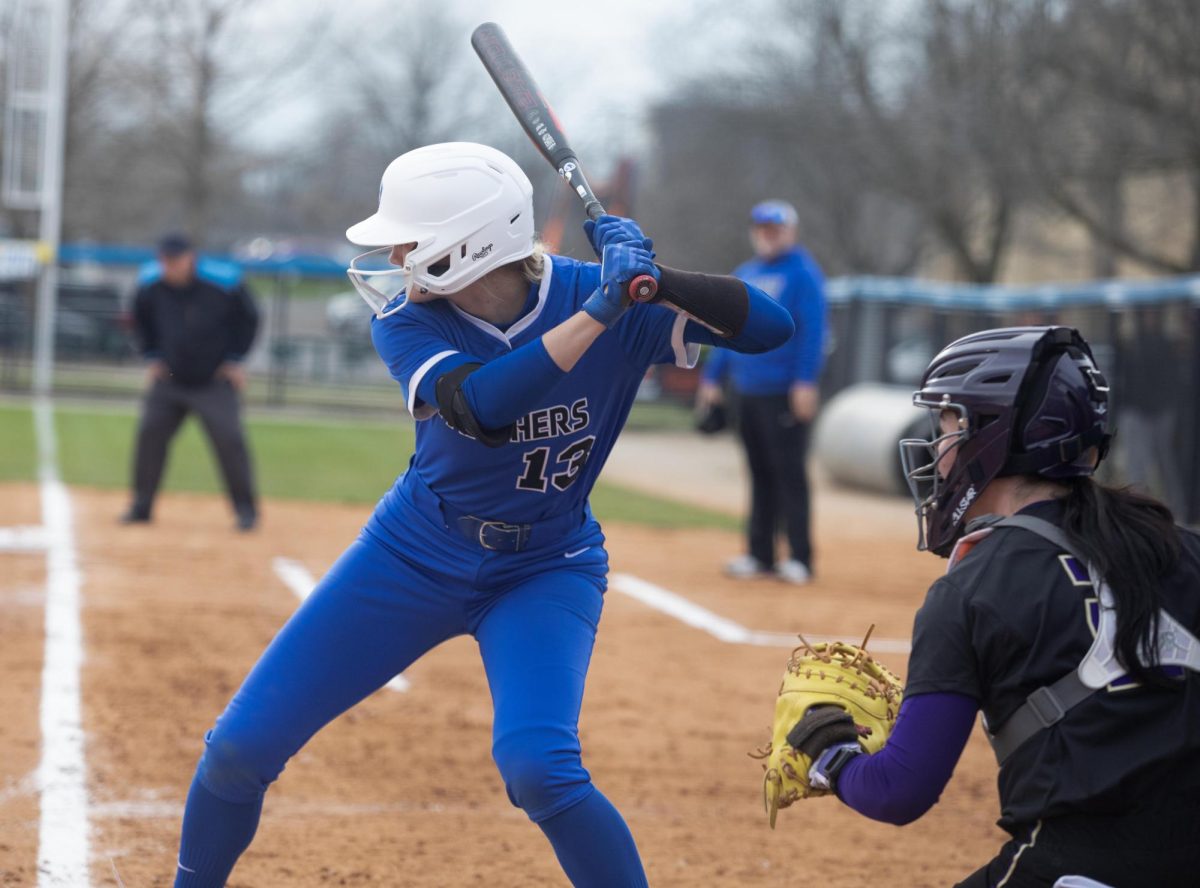















![The Weeklings lead guitarist John Merjave [Left] and guitarist Bob Burger [Right] perform "I Am the Walrus" at The Weeklings Beatles Bash concert in the Dvorak Concert Hall on Saturday.](https://www.dailyeasternnews.com/wp-content/uploads/2025/03/WL_01_O-1200x900.jpg)
![The team listens as its captain Patience Cox [Number 25] lectures to them about what's appropriate to talk about through practice during "The Wolves" on Thursday, March 6, in the Black Box Theatre in the Doudna Fine Arts Center in Charleston, Ill.](https://www.dailyeasternnews.com/wp-content/uploads/2025/03/WolvesPre-12-1200x800.jpg)













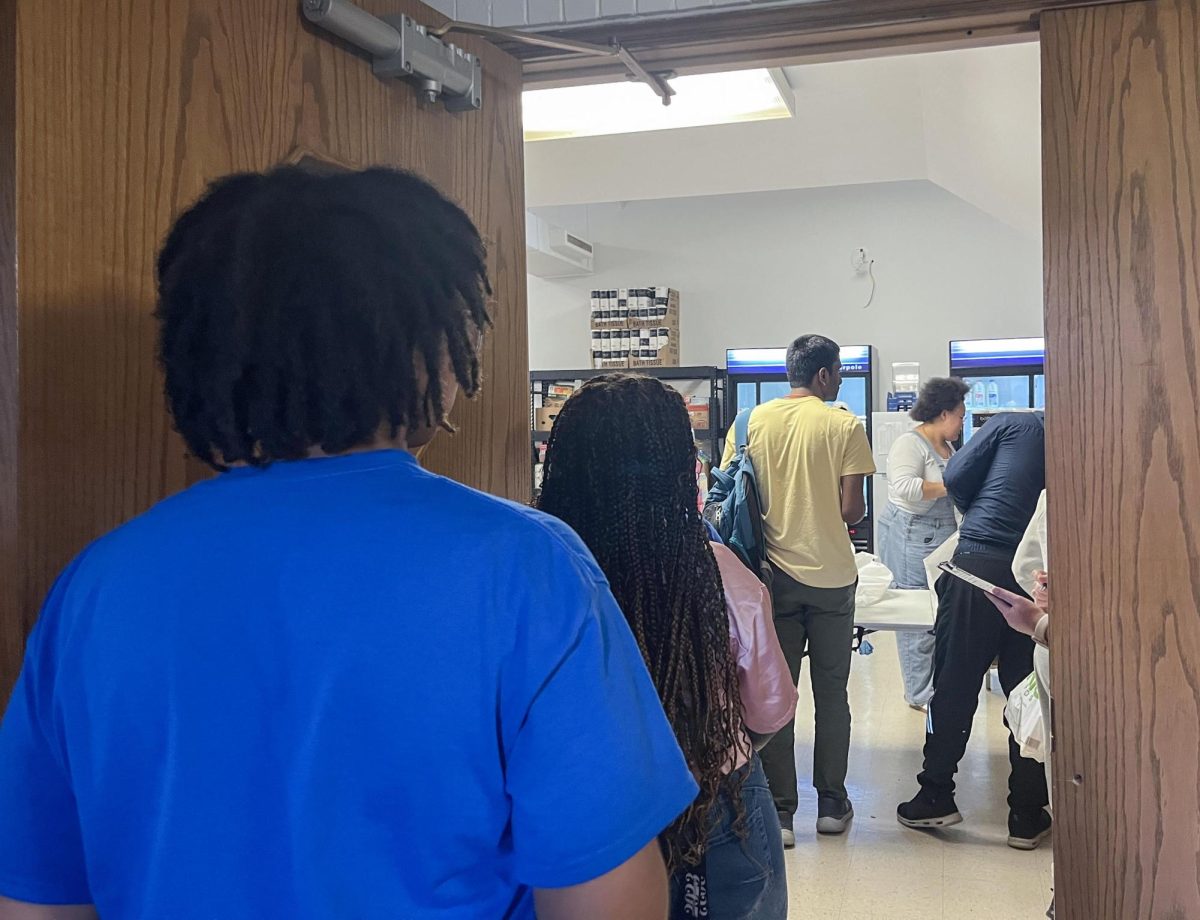
![[Thumbnail Edition] Eastern Illinois University President Jay Gatrell welcoming staff and faculty to the Spring 2025 Plan 2028 update in Doudna Fine Arts Center on March 26, 2025.](https://www.dailyeasternnews.com/wp-content/uploads/2025/03/P2028_01_O-1-e1743206673730-1200x560.jpg)
